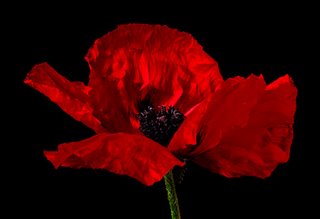
My father was drunk the night he meet my mother. He was an officer stationed in Brandon, Manitoba during World War II. The day he heard the news that two of his brothers, both of them pilots, were M.I.A, he pleaded with his commanding officer to go to Europe, to the front. He had the crazy idea that he could find them. His commanding officer refused the request.
At an army dance that night, my father tied one on. He was navigating a treacherous piece of heaving floor when he saw the most beautiful girl he’d ever seen in his life talking on a pay phone. That’s how he described her – after he got past the habit of telling my brother and me that he’d rescued my mother in a train station after overhearing her ask for a ticket to the Old Maid’s Home.
The happy ending was that he married the most beautiful girl he’d ever seen. Uncle Stan came home alive and well. The sad part is that my Uncle Eddie didn’t come home at all.
My father denied this ever happened, But I came home one afternoon when I was only four or five and my father was sitting in our big green armchair, crying. My mother was perched on one arm of the chair with her arms around him. “Your father is sad about your Uncle Eddie dying in the war,” she said, "Sometimes it's good to have a cry." I remember this clearly because my father, as far as I knew then, never cried.
In a good-looking family, he was the youngest and most handsome, the one, my father said, every girl in town dreamed about. I could believe it when my father showed me the photographs. Dad said he was sweet tempered, too and easy to love. If my father was 21 or 22 when he enlisted, and Eddie was younger, then how young was he when he died in a sky over Europe?
Much later in life, as dementia began to claim my father’s mind and shortly before he died, his wife told me that he’d get up every morning very early and creep around the house trying to be quiet. “He thinks he’s been sleeping beside Eddie every night, and he doesn’t want to make noise and wake him up.” They’d bunked that way as kids – on a poor prairie farm there were only so many blankets and an excess of cold.
When I heard about Eddie’s reappearance, I thought the veil gets thinner at the end. I knew my father would die soon and my sense was that Eddie’s presence was a kind of reassurance. I didn’t for a moment think he was imagined, or a product of the dementia or dreamed. If it’s my imagination, that’s all right. My truth doesn’t have to be the truth, or anyone else’s truth.
So this Remembrance day, I send my love to my Uncle Eddie. I send love to Randy in Missouri who, in one short ride to and from a prison visit, shared feelings about Vietnam I don't think he'd ever shared with anyone and touched my heart. I send love to George Fowler from Connecticut – whom I knew before the war and saw between tours of duty in Nam and who I searched for many times over the years afterwards but could never find, and to all the men and women the world over dying bravely and honorably in wars that, no matter how just or not the cause, have never, in the end, brought us peace. May you all have peace and joy now. May there be an end to war.

